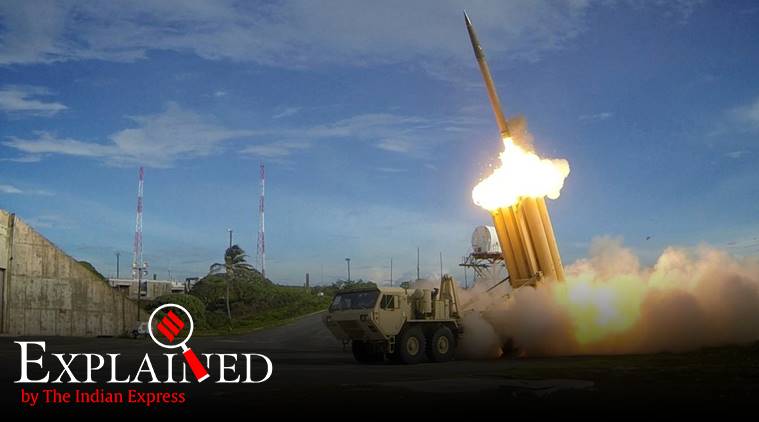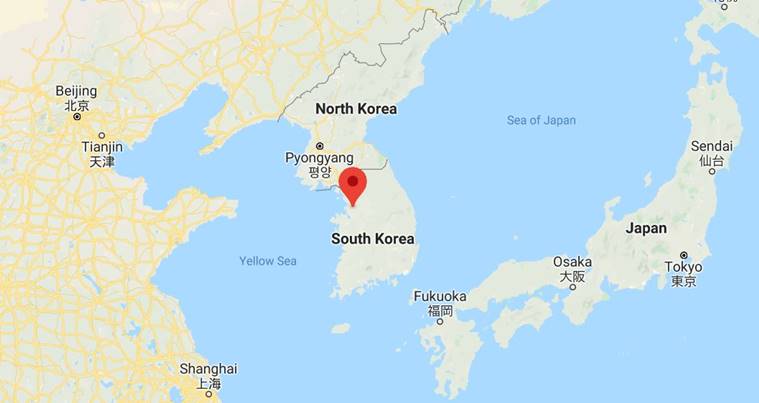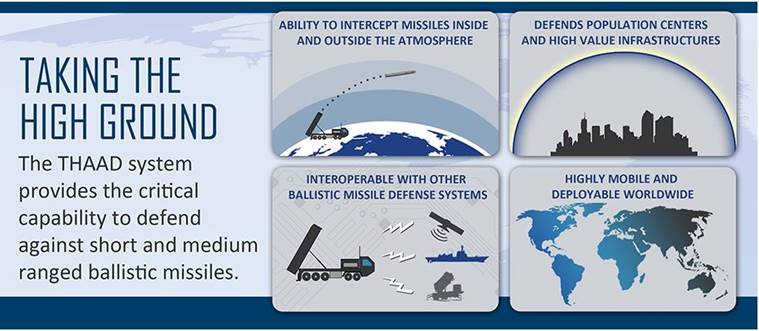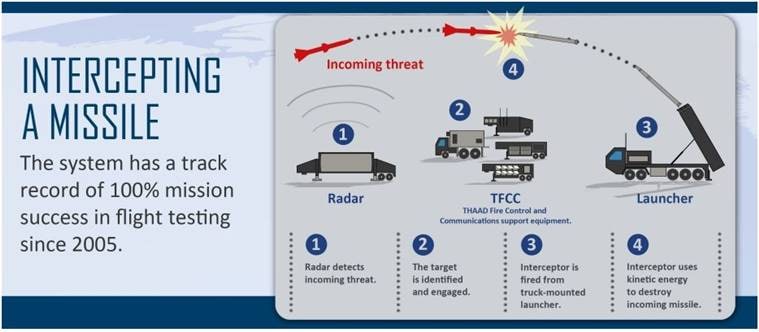- India
- International
Explained: Why China is opposing THAAD defence systems in South Korea
According to some observers of East Asia, China believes the US exerts influence over South Korea and Japan and may interfere with Beijing's long-term military, diplomatic and economic interests in the region.
 Apart from South Korea, the THAAD missile defense system has been previously deployed in the UAE, Guam, Israel and Romania. (File Photo)
Apart from South Korea, the THAAD missile defense system has been previously deployed in the UAE, Guam, Israel and Romania. (File Photo)
China has issued a statement reiterating its long-standing objections to the presence of the US THAAD missile defence system in South Korea. Its opposition Friday came following reports of an overnight operation to bring in new, replacement interceptor missiles to the US base in South Korea.
China has been objecting to the defence system since it was first deployed in South Korea three year ago, causing a deterioration in ties between the two countries.
What is THAAD?
THAAD is an acronym for Terminal High Altitude Area Defense, a transportable, ground-based missile defense system. In the book Theater Missile Defense (TMD) in East Asia: Implications for Beijing and Tokyo, Lars Assmann writes: “THAAD is coupled with space-based and ground-based surveillance stations, which transfer data about the incoming missile and informs the THAAD interceptor missile of the threat type classification. THAAD is alarmed about incoming missiles by space-based satellites with infrared sensors.”
This anti-ballistic missile defense system has been designed and manufactured by the US company Lockheed Martin. South Korea is not the only country with the THAAD missile defense system. It has been previously deployed in the UAE, Guam, Israel and Romania.
📣 Express Explained is now on Telegram. Click here to join our channel (@ieexplained) and stay updated with the latest

What is this South Korea-China controversy over THAAD about?
In South Korea, the THAAD missile defense system is operated by the US army stationed in the country. The US had previously announced that the deployment of this missile defense system was a countermeasure against potential attacks by North Korea, particularly after the country had engaged in testing ballistic missiles.
In 2017, matters escalated in the Korean Peninsula after North Korea test fired a few missiles in the direction of US bases in Japan. Following this incident, the US amended its plans and moved the systems to its army base in Osan, South Korea while the final deployment site was being prepared.
 The Osan Air Base is located in South Korea.
The Osan Air Base is located in South Korea.
These moves by the US and by extension, South Korea, particularly angered China. For a while the dispute has temporarily subsided, if not resolved. However, with the latest developments, it appears the controversy has resurfaced.
Why is China opposing THAAD in South Korea?
According to The Washington Post, China’s opposition has little to do with the missiles itself and is more about the system’s inbuilt advanced radar systems that could track China’s actions. The controversy also has much to do with the geo-politics and complex conflicts in East Asia, with the US having a presence in the region particularly through its many military bases in Japan and South Korea.
According to some observers of East Asia, China believes the US exerts influence over South Korea and Japan and may interfere with Beijing’s long-term military, diplomatic and economic interests in the region.
 Lockheed Martin is the primary contractor in the THAAD project. (Source: Lockheed Martin)
Lockheed Martin is the primary contractor in the THAAD project. (Source: Lockheed Martin)
Following the deployment of replacement missiles Friday, Reuters reported that China had issued a statement urging the US not to harm bilateral relations between Beijing and Seoul. South Korea’s Yonhap news agency added that China warned the US not to interfere in its “national interests”. The US and South Korea have consistently maintained that these missiles are only to counter potential threats by North Korea.
South Korea also issued a statement saying the number of missiles had not increased, but had only been replaced with newer versions.
 The radar in the system first intercepts an incoming missile. Any such threat is identified by those manning the system, who then fire a projectile from a truck, called the interceptor, at the missiles. (Source: Lockheed Martin)
The radar in the system first intercepts an incoming missile. Any such threat is identified by those manning the system, who then fire a projectile from a truck, called the interceptor, at the missiles. (Source: Lockheed Martin)
China’s response to THAAD in the past
When the controversy first arose in 2017, China had hit South Korea economically. South Korean businesses, including large conglomerates like LG, Lotte and Samsung, found their diversified operations hampered. These included the shutting down of institutions and enterprises that had little to do with the defence and military, like golf courses and shopping malls.
Post this development in 2017, tourism from China to South Korea fell drastically. Many Chinese tourists who are fans of Korean entertainment travel to South Korea — the tourism industry contributes significantly to South Korea’s economy.
South Korea’s entertainment industry witnessed concerts, shows and other commercial ventures in China by K-pop stars being forced to cancel as a result of this controversy.
South Korean cosmetics and beauty products that are extremely popular in China also witnessed their sales being impacted, due to calls on social media to boycott South Korean products. Hence, the impact of the controversy was not limited to a diplomatic level, but had far-reaching consequences.
Three years on, it is yet to be seen if the latest development will have a similar effect on relations between the countries.
More Explained
EXPRESS OPINION
Apr 26: Latest News
- 01
- 02
- 03
- 04
- 05










































